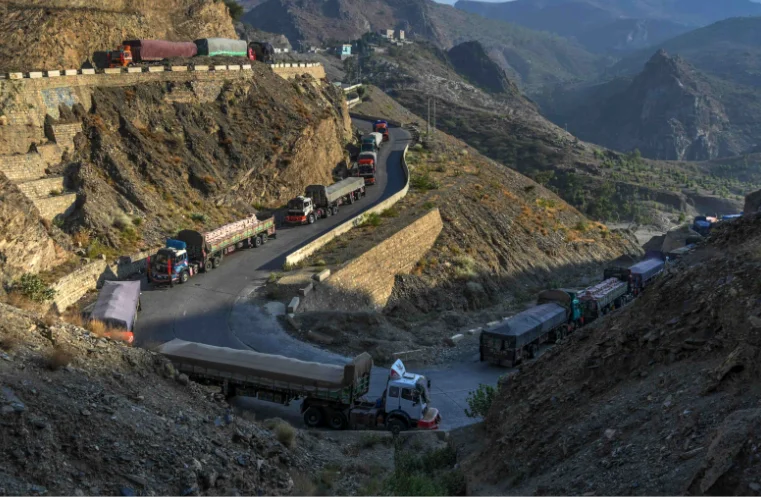Islamabad, Jan 10: The Federal Board of Revenue (FBR) has implemented significant reforms aimed at enhancing the monitoring and secure transportation of transit and transshipment cargo to Afghanistan. These measures reflect the FBR’s commitment to improving the efficiency and safety of cargo movement across borders.
The FBR’s recent decision to update the monitoring system of transit cargo has replaced satellite tracking with human oversight. This change, however, has sparked confusion and criticism, especially regarding the revocation of the license of the only company using satellite tracking. The license was transferred to four companies that had technically qualified for the role four years ago.
Critics argue that these companies lack modern equipment and the necessary expertise to carry out such tasks effectively. However, this criticism stems from a misunderstanding of both the previous system and the interim solutions put in place by the FBR, which aims to establish a more secure, state-of-the-art technology-based system.
The license of the company that had been responsible for satellite tracking since 2013 was not revoked arbitrarily. It followed a thorough legal process based on several issues:
- Outdated tracking technology
- Frequent technical malfunctions
- Inability to conduct live satellite tracking along the route while still charging substantial fees amounting to Rs. 445 million, thus earning excessive profits
- Suspension of operations due to cyber-attacks
- Numerous legal violations and cases filed by field authorities
- Admission by the company that their devices failed to provide effective satellite services and frequently issued false or unnecessary alerts
These actions were part of a broader effort to eliminate the monopoly of a company that had been offering subpar services while overcharging, undermining the integrity of the cargo tracking process.
The four companies now handling the cargo tracking were carefully evaluated and granted licenses based on the Tracking and Monitoring of Cargo Rules.
To maintain the security of cargo, the following measures have been implemented:
- Installation of PMD devices on vehicles
- Escorting cargo in convoys with Customs personnel from the arrival port to the destination port
- Selective scanning of cargo at both ports to deter theft and ensure safety
- Establishment of a centralized Customs Control Room that operates 24/7 for real-time monitoring
- Continuous surveillance of transit and transshipment cargo by enforcement units across the network
Furthermore, the FBR has begun the tendering process to select new tracking companies through a competitive and transparent bidding process. This will ensure the deployment of the latest technologies in cargo tracking and monitoring.
Contrary to some reports, the FBR has not discontinued the requirement for Container Surveillance Devices (CSDs). Instead, the updated system will integrate the most advanced GSM and satellite tracking technologies, ensuring the most secure and efficient cargo monitoring system possible. The ongoing Expression of Interest (EOI) process will lead to the selection of qualified companies equipped with the newest technologies to enhance the safety and reliability of cargo transportation.
